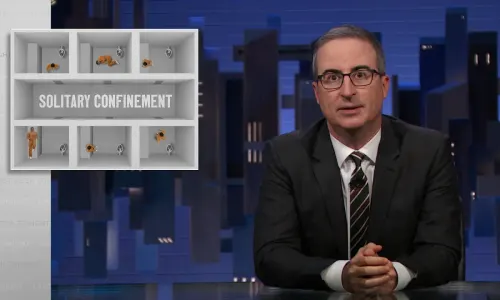See all LastWeekTonight transcripts on Youtube

Solitary Confinement: Last Week Tonight with John Oliver (HBO)
20 minutes 11 seconds
🇬🇧 English
Summaries Topics Transcript Chapters Titles Socials Twitter Blog Post Newsletter Quotes Quizzes Ask ChatGPT

Omnivision Solutions Ltd
- Getting Started
- Create Transcript
- Pricing
- FAQs
- Recent Transcriptions
- Roadmap